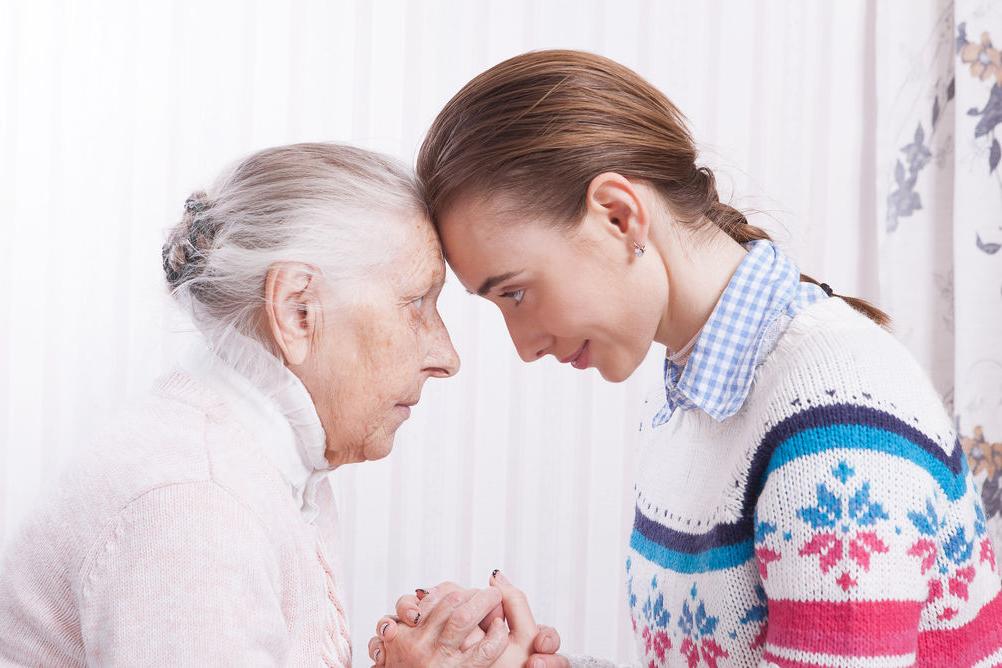Number of young carers in UK soars by 10,000 in four years, figures show
Exclusive: Surge in number of teenagers caring for disabled relatives prompts concerns pressures on care system is placing ‘burden’ of responsibility on young family members

Your support helps us to tell the story
From reproductive rights to climate change to Big Tech, The Independent is on the ground when the story is developing. Whether it's investigating the financials of Elon Musk's pro-Trump PAC or producing our latest documentary, 'The A Word', which shines a light on the American women fighting for reproductive rights, we know how important it is to parse out the facts from the messaging.
At such a critical moment in US history, we need reporters on the ground. Your donation allows us to keep sending journalists to speak to both sides of the story.
The Independent is trusted by Americans across the entire political spectrum. And unlike many other quality news outlets, we choose not to lock Americans out of our reporting and analysis with paywalls. We believe quality journalism should be available to everyone, paid for by those who can afford it.
Your support makes all the difference.The number of recognised young carers in the UK has risen by more than 10,000 in four years, prompting concerns that they are taking up the slack from increasingly pressured adult social care services.
An analysis of the most recent government figures by The Independent shows that in May 2017 there were 41,870 16-to-24-year-olds who qualified to receive the carer’s allowance, compared with 31,080 in 2013 – an increase of 35 per cent.
Those aged 16 and 17 saw an even bigger rise during the same period – up by 54 per cent from 1,400 to 2,150.
Carer’s allowance is a benefit for people who spend at least 35 hours a week caring for disabled people in their own homes. It is currently worth £62.70 per week
While campaigners welcomed the fact that more young carers are receiving financial support, they warned that cuts to care packages and pressures on adult social care services mean more teenagers and young people are having to sacrifice work and study to care for relatives.
Laura Bennett, head of policy at Carer’s Trust, told The Independent: “It’s good that there are more people getting the allowance. It helps support them with the extra costs of caring which can avoid them missing out on other things.”
But she said that for some young carers it was not “easily obtainable or being reduced”.
She added: “This can leave them having to make difficult decisions about whether to stay in work or study, and having to claim carer’s allowance.”
Ms Bennett also raised concerns that the Care Act 2014, which placed a duty on local authorities to consider the needs of children and young people living in households where there is an adult who has a disability or impairment, was not being properly implemented because of a lack of financial resources available.
“We’re concerned that there isn’t enough funding to implement the act, both for young adults and also the people they support,” she said.
She added that this ”can leave young carers unable to pursue their own aspirations because of the amount of caring responsibilities”.
She said: “Some young people don’t experience any problems and can experience a big sense of pride and a sense of achievement. But if they don’t get the right support – which is often the case – it can leave them feeling stressed and worried. It can lead to them not having life chances that other young people do.
“We think a lasting solution needs to be found to the adult social care funding crisis, and we are calling on central government to find that solution so that local authorities have the funding they need to implement the duties they have under the Care Act.”
Responding to the figures, Barbara Keeley MP, Labour’s shadow minister for social care, said “Tory cuts” were responsible for a decline in the number of people eligible for publicly funded care.
This meant the “burden” was falling “more and more on young family members”, she said.
She said: “Tory cuts to local authority funding will have seen £6.3bn taken out of adult social care budgets by March 2018 and the impact is clearly being felt both by people in need of care and, increasingly, younger carers.”
She added: “The Tories need to ease the social care crisis by giving the system the money it needs. Labour would invest £8bn across the Parliament with £1bn up-front this year.”
Simon Hopkins, chief executive of Turn2us, a charity that offers grants and advice to people struggling financially, said: “Caring for someone with a disability is a huge responsibility and most people become carers because someone close to them needs and relies on them.
“This combination of need for support and emotional ties can put a lot of pressure on the carer, and so this is a particularly hard situation for a young adult to be dealing with. It is crucial that all carers, and young carers in particular, are given a range of support that gives them the options to learn and work that those who are not carers have.”
Responding to the concerns, adult social care minister Caroline Dinenage said: “Young carers are this country’s unsung heroes, tirelessly providing support for the people they love.
“I am determined to ensure young carers aren’t left behind. While the Government is already taking action to ensure young carers and their families are supported, I am clear we can do more and we will consider this both as part of the social care green paper due to be published in the summer and in our Carers Action Plan.”
If you are a young carer, visit Turn2us.org.uk for help with understanding and accessing support you may be eligible for
Join our commenting forum
Join thought-provoking conversations, follow other Independent readers and see their replies
Comments